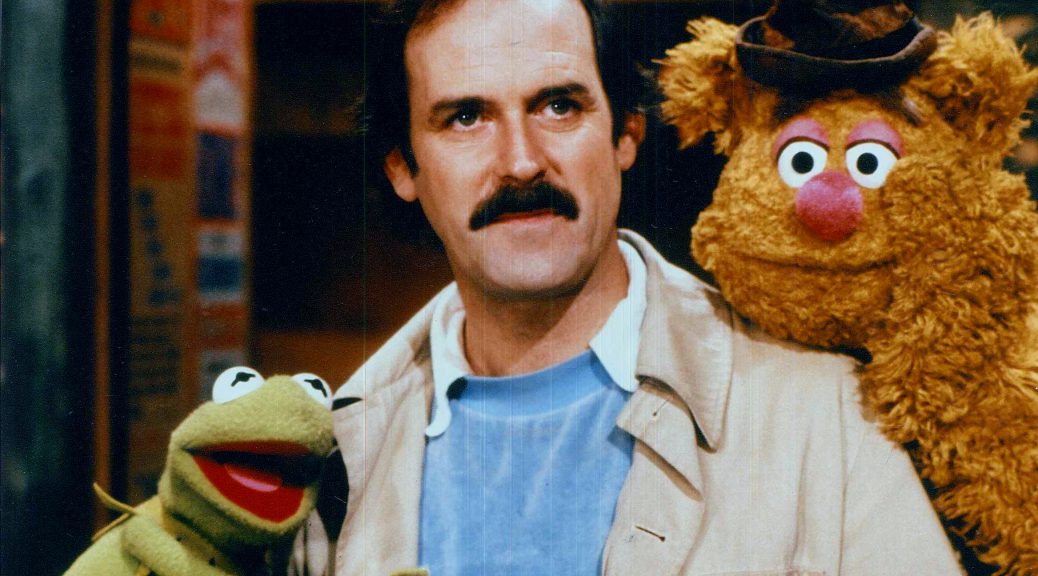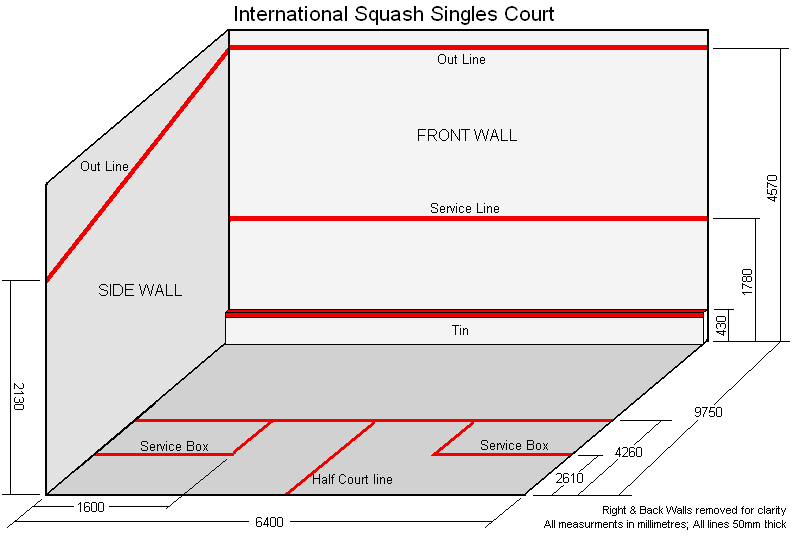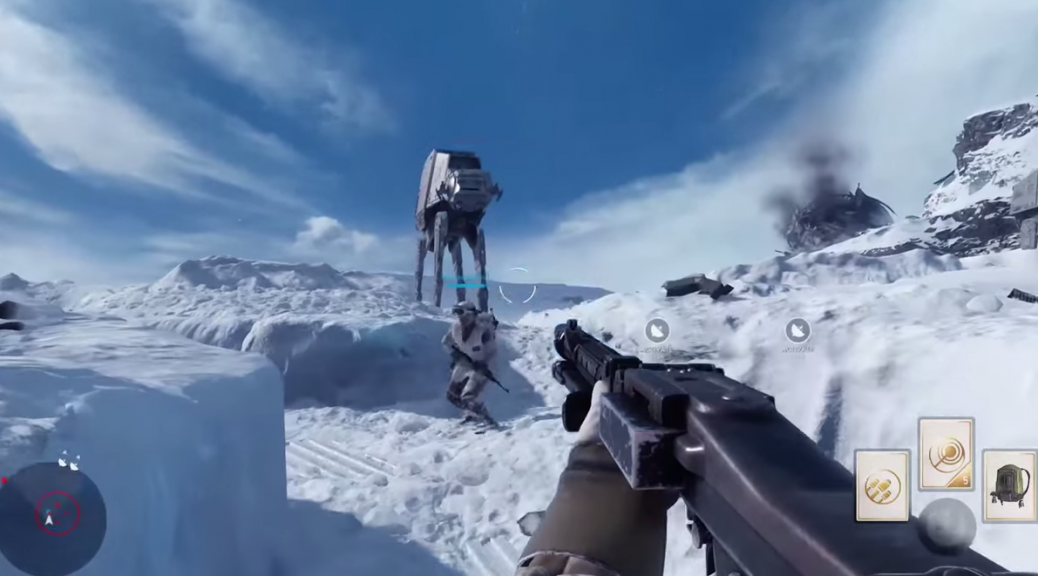From the futurist who brought you Star Trek’s City at the Edge of Tomorrow and the Terminator…….
Category Archives: Art
John Cleese On Humour
John Cleese On Humour:
Humour is much more subjective. The rules of film comedy have changed because the market for films is completely shaped by the target audience NOT by the vision. The internal logic must be maintained in any given sketch or else it doesn’t work….these are the kinds of insights you WON’T FIND in the video above;-P
Talking Heads – Remix
John Cleese On Creativity
- John Cleese on Creativity;
- What creativity isn’t;
- The close mode;
- The open mode;
- Getting into the open mode;
- Time;
- Avoiding rushed solutions;
- Confidence;
- Humour.

John Cleese on Creativity:
You need to study creativity in order to become creative. It isn’t innate, it’s learned. Studying creativity is quite fascinating. The sort of childhood you had could impact creativity somewhat because creativity is about returning to a state of openness to ideas without judgement…..
What Creativity Isn’t: It is not a talent. It is a way of operating. Creativity is not related to IQ in the McKinnon research from the University of Sussex. Those who were regarded as most creative were not necessarily the most intelligent…. Creative people are able to get themselves into a specific mood; a mood that is open to play and be child like with ideas. Getting someone to be creative is about getting people to return to kintergarden……

The closed mode: we are often in the closed mode. The feeling that lots has to be done, you are slightly anxious, it’s the mode of impatience, there is tension and purposefulness in this mode. It is a mode of stress, but NOT a creative mode. You get your deliverables completed during the closed mode.
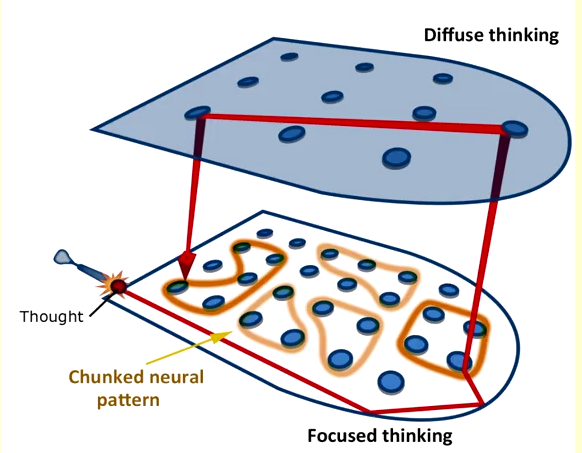
The open mode: relaxed, expansive, less purposeful, more inclined to humour, more playful. A mood in which curiousity is more interesting. Alexander Fleming who invented penasilin discovered it in the open mode. All moments of genius are in the open mode. If he had seen the dish without any culture in it while in the closed mode that uncultured dish would be deemed irrelevant HOWEVER in the open mode, Fleming was able to discover something that changed human development….
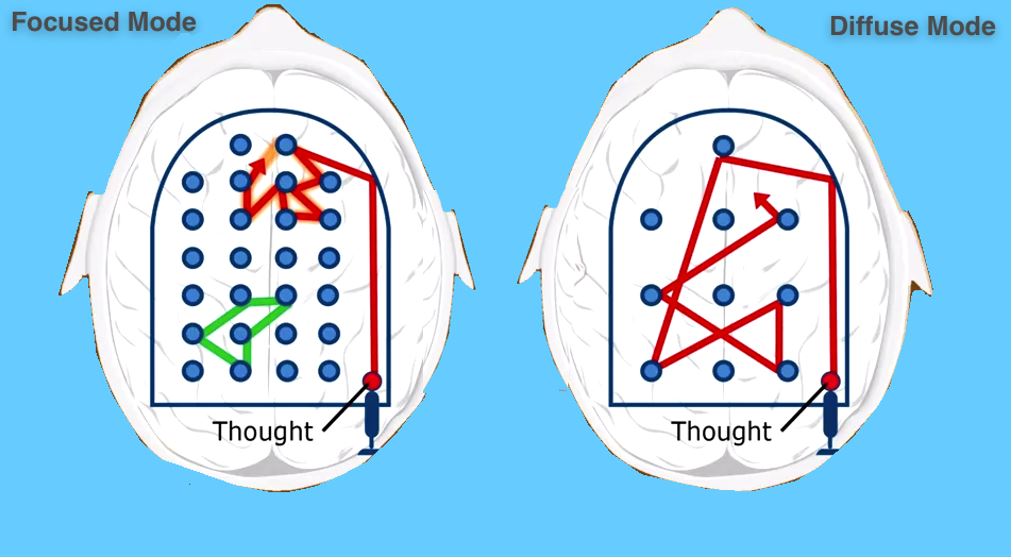
Alfred Hitchcock would stop working when he had writers block & tell a random story from his childhood in order to overcome that dastardly writers block. We need to be in the open mode when we are pondering BUT once we have the idea, we need to return to the closed mode to make it real.
Once we have taken a decision, we should execute the task, then we need to return to the open mode to review the success of that task. So we need to be able to switch back between the two modes, in order to maximise our creative capacity.
Tunnel Vision: The problem is we are trapped in the closed mode in our lives. Creativity is not possible in the closed mode which is why so many politicians are truly problematic because they are obsessed with the closed mode of thought and not willing to explore the open mode under pressure.
Getting Into The Open Mode: You need five things:
(1) Space: you can become playful if you are under your usual pressures but only in a quiet room. You need to create space for yourself and sealing yourself off from distractions. Meditation is an excellent means of shifting onto the open mode. You need an oasis of quiet through boundaries of space and….time.
(2) Time: you need have a specific period of time to play in. It must have a begining and end point. You need to know that your time is set for a specific period, it’s only when you have a specific time that you can then close yourself off for play. Play is distinct from ordinary life. You need to have a limited point of play otherwise it is no longer play.

(3a) Space/Time Oasis: Getting 1.5 hours of the open mode will help you acquire creative ideas. After 1.5 hours, you will need a break from the creative mode anyway…..
(3b) How To Use The Oasis: why do you still need time? Cleese had a colleauge in Monty Python who rarely came up with anything more creative than Cleese (Terry Jones?), this fellow when faced with a problem would rush to a solution when it arose, he would always take the easy solution immediately rather than hack at it further to find an original solution. Meanwhile, John Cleese would sit there for the extra hour or two and come up with something more original, Cleese was more creative than his Monty Python colleague because he invested in the Space/Time Oasis.
(3c) Developing Negative Capability: It’s this discomfort with uncertainty that returns you to the closed mode as you are exploring the oasis. Keats coined the term but Cleese is talking about the Negative Capability mindset. It’s okay to not have the answer immediately, and it’s okay to wait for a 3rd or 4th solution before returning to the closed mode. Uncertainty is a good thing believe it or not…
(4) Confidence: Nothing will stop you from being creative more immediately than a fear of making a mistake. Accept that you will make mistakes. British culture is steeped in an obsession with the closed mode and a deep fear of making mistakes which explains why Britain is overoptimised towards none creative innovation (financial sector in particular). Being perfect is placed on a pedestal and as a result, creativity is crushed. You should not be focused on being perfect but rather be open to health striving. You MUST be spontaneous, silly and illogical in the open mode. The best way to get confidence is to accept that there is NO SUCH THING as a mistake.
(5) Humour: the quickest way from the closed mode to the open mode. The truth is that really original ideas were needed but that humour was taboo and the subject was too serious. The difference between seriousness and solemness. Humour makes a funeral more fun. Solemness makes people feel bigger. Humour is essential for serious problems.
Keep your mind leaning on an idea and suddenly you will be rewarded randomly while eating, showering or those moments of relaxation (but you need to put in the pondering time):
Avoid Distractions: it is easier to do trivial things that we know we can do than to do difficult things that we aren’t sure about. You need to quiet your mind in time.
The Japanese Use Groups Creatively: Japanese meetings are completely not structured and they have found a way to plan an unstructuredness. It’s easier to be creative if you have a group to work with. Never say no! or wrong, never be negative, never kill an idea. No is illegal in this discussion.
Humour: the joke occurs when you connect two frameworks that intersect in an amusing way. The moment of contact between two ideas triggers humour.
Ideas Are About Connecting Two Seperate Ideas: you can connect toasters and democracy. But it won’t be GOOD unless there is something meaningful about their new combination. You can produce juxtaposition which is used heavily in satire for example. Lateral thinking is about loosening up these connections. You need to develop intermediate impossibles in your thinking; “what if the sky was a hat?”….”how big is the blue hat market?” Ultimately, when you are playing, nothing is wrong. Start generating random connections until you find something interesting.
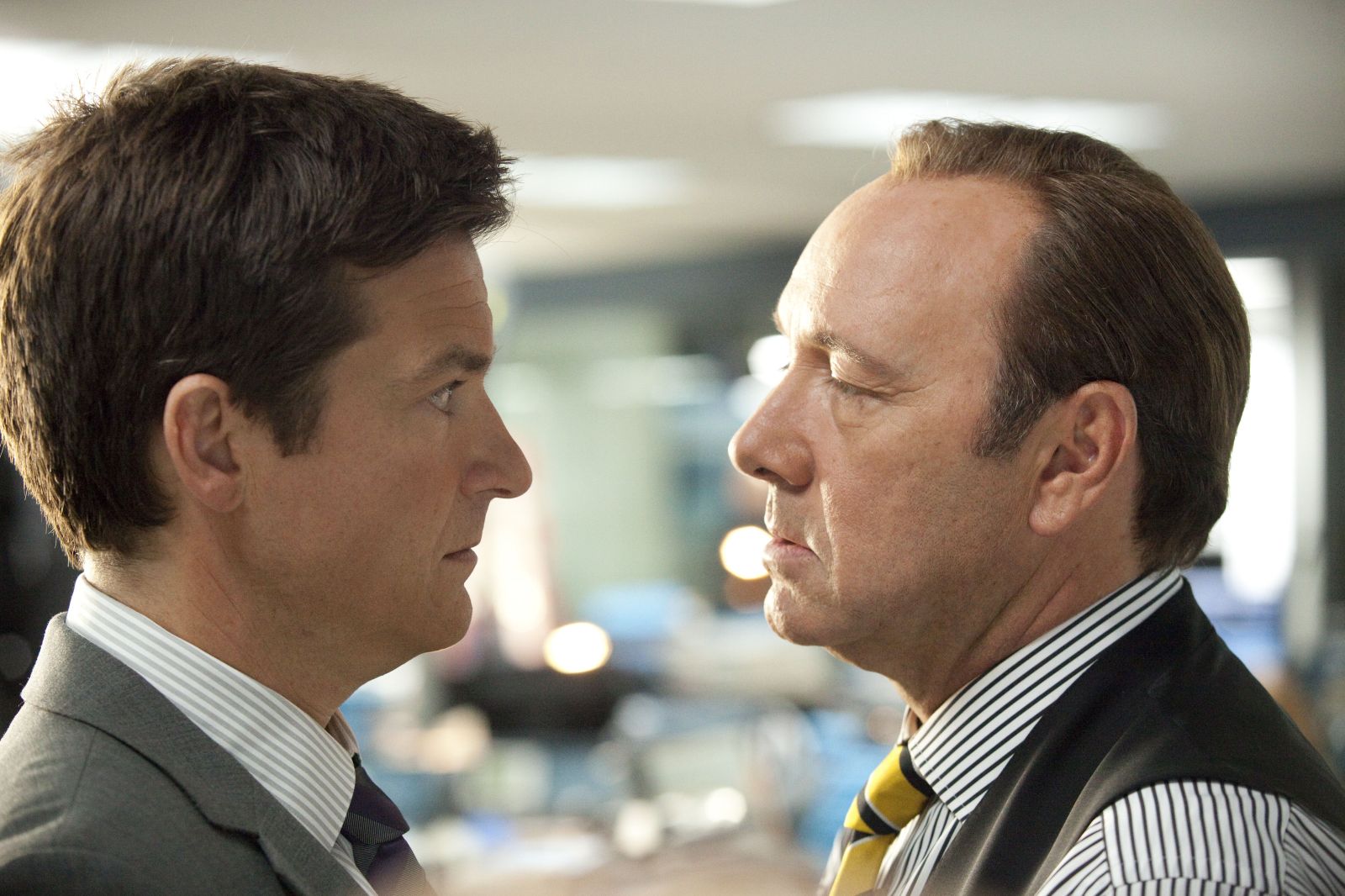 How To Stamp Out Creativity In Your Team:
How To Stamp Out Creativity In Your Team:
- Allow No Humour: treat humour are subversive, blame humour for the resistance.
- Keep Yourself Irreplaceable: always undermine their confidence, use your authority to focus on the negative, only criticise. Praise makes people uppity.
- Keep ’em Busy: never allow employees any thinking time. Demand urgency, use war analogies, and keep that mode closed!
Is Star Wars Battlefront More Entertaining Than Any Of The Films?
Box Office versus XBox
The real story is the future revenue for Star War Battlefront. Dice Games has produced what appears to be a first person game that combines topnotch graphics and spectacular but violent game play with a global brand that’s about to release a highly anticipated film in 2015. We know that video games are already much more lucrative than film as of 2009. Movies are a 30 Billion dollar industry while Video Games at a 70 Billion dollar industry. Isn’t it more entertaining to be part of the story rather than passively watching a film? I believe that the film will make 1.5 Billion but this video game could make much more….and as a proxy, I use revenue to mark the entertainment value of a content. Therefeore Battlefront, quite possibly, will be more entertaining than any of the films.
Why The Next Spielberg Should Explore Video Games As An Avenue for Story Telling
- people like to feel part of the story;
- more money: you can’t easily pirate a video game whereas film is easy to pirate, they are easier to access than a movie theatre;
- no actor egos to sooth;
From http://www.statisticbrain.com/star-wars-total-franchise-revenue/
| Total Star Wars Franchise Revenue | $27,000,000,000 |
| Movies | Revenue |
| Star Wars : Episode 1 – The Phantom Menace | $924,317,558 |
| Star Wars : Episode 2 – Attack of the Clones | $649,398,328 |
| Star Wars : Episode 3 – Revenge of the Sith | $848,754,768 |
| Star Wars : Episode 4 – A New Hope | $775,398,007 |
| Star Wars : Episode 5 – Empire Strikes Back | $538,375,067 |
| Star Wars : Episode 6 – Return of the Jedi | $475,106,177 |
| Star Wars : The Clone Wars | $68,282,844 |
| Total Box Office Revenue | $4,277,000,000 |
| DVD | |
| DVD Sales | $2,900,000,000 |
| DVD Rentals | $875,000,000 |
| Toys | |
| Kenner (1978-1985) 90 Figures / 300 Million Sold | 3,850,000,000 |
| Hasbro (1995-2011) 15 Collections | 5,537,000,000 |
| Other Collectables | 2,720,000,000 |
| Books | |
| 358 Published Titles / 76 Different Authors | $1,820,000,000 |
| Video Games | |
| 130 Games Released | $2,900.000,000 |
| Other Sources | |
| Licensing | $625,000,000 |
| Television / 4 Seasons of Clone Wars | $4,500,000 |
| Merchandise | $675,000,000 |
| Related Star Wars Statistics | Data |
| George Lucas’ Net Worth | $3.6 Billion |
| Random House sales from the first book release of Star Wars | $200 Million |
| Revenue last year from games and toys | $1.5 Billion |
Global War & Video Games:
Dice Games is responsible for the video game above. It looks as though game developers are pushing the boundaries further with war gaming and with highly entertaining effects. Although war is not supposed to be taken lightly, games like this do aclimate players to violence which could be helpful in an alien invasion or an unfortunate proxy drone war between competting world powers. Certainly land invasions that are piloted by people sitting in their pijamas is on the horizon in our near future as a species. I hope to not be a civilian victim of a drone attack in my lifetime though, so lets work on world peace people! Interesting that Dice is Swedish.


